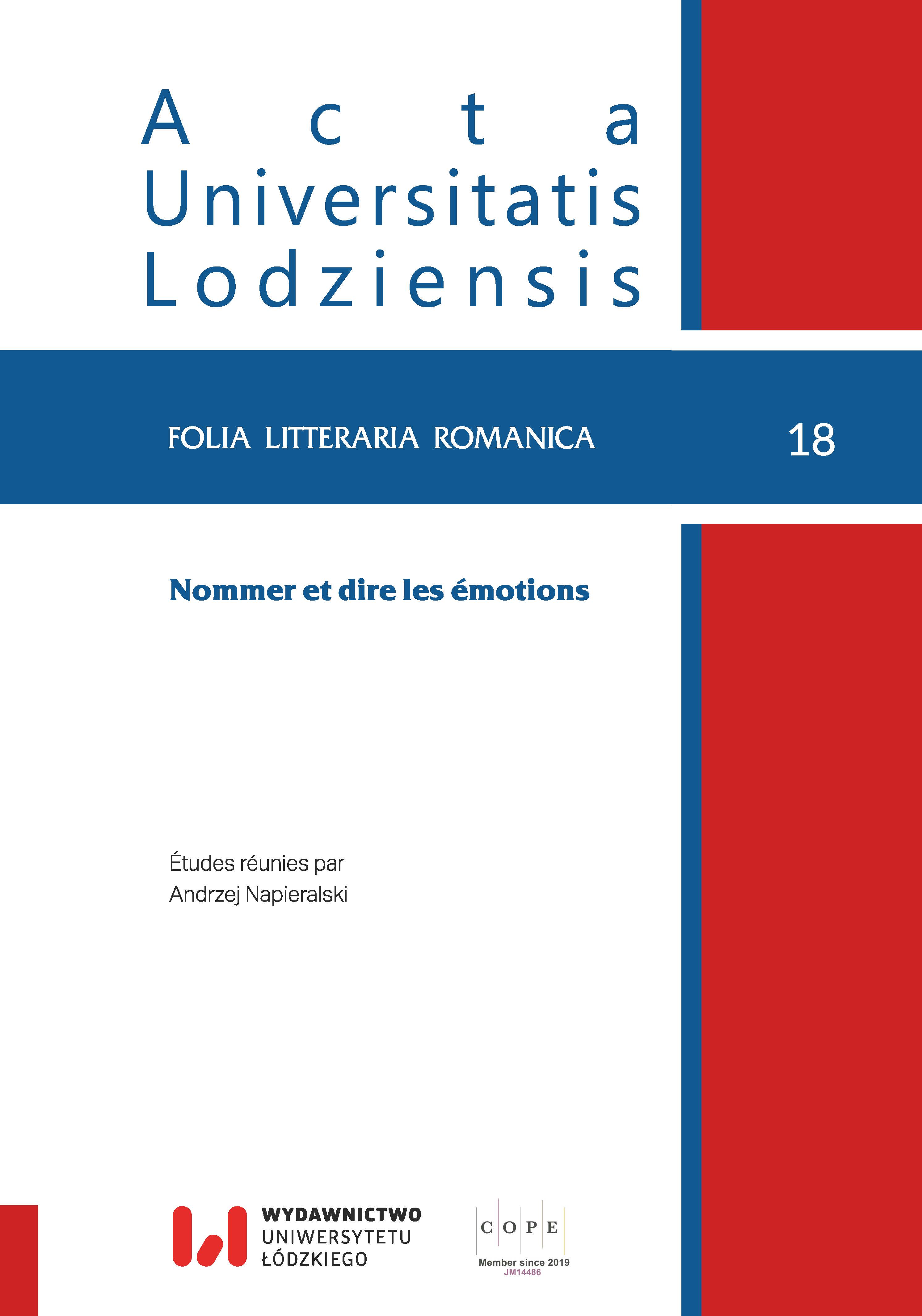The Vocabulary of Illicit Loves in Parisian Slang from the Second Half of the 19th Century According to Alfred Delvau
DOI:
https://doi.org/10.18778/1505-9065.18.02Keywords:
Alfred Delvau, Parisian slang, Breda-Street, lexicon, prostitutionAbstract
During the late 19th century, prostitution was a prevalent issue in Paris and was mainly concentrated in the Saint-Georges district and the Breda-Street area. To understand the language and slang related to this topic, Alfred Delvau’s Dictionnaire de la langue verte, published in 1867, offers a fascinating insight. The dictionary lists various terms and expressions used by prostitutes, their clients, and other individuals involved in the trade. The classification of these slangs is debatable, but they provide a starting point for studying the vocabulary of prostitution from the 1850s to 1900s. Some of the categories proposed in the dictionary are particularly intriguing, such as the different types of prostitutes or the locations where they worked. These categories not only are valuable for language scholars, but they also have been found in literature from the time, including works of authors such as Gustave Flaubert, Victor Hugo, and Émile Zola. By studying this vocabulary, we can gain a deeper understanding of the culture and society of Paris during the late 19th century, as well as the role of prostitution in shaping it.
Downloads
References
ADAM, Paul (1885), Chair molle, Bruxelles, Blancart
Google Scholar
COLIN, Jean-Paul, MEVEL, Jean-Pierre (1990), Dictionnaire de l’argot, Paris, Larousse
Google Scholar
DAUDET, Alphonse (1884), Sapho, Paris, G. Charpentier et Cie
Google Scholar
DE GONCOURT, Jules (1890) [édition 1959], Journal : mémoires de la vie littéraire, t. 3 : 1879-1890, 1ère Paris, Fasquelle et Flammarion
Google Scholar
DELVAU, Alfred (1864), Dictionnaire érotique moderne par un professeur de langue verte, Freetown, Imprimerie de la Bibliomaniac Society
Google Scholar
DELVAU, Alfred (1867), Dictionnaire de la langue verte – Argots parisiens comparés, Deuxième édition Entièrement refondue et considérablement augmentée, Paris, E. Dentu
Google Scholar
DICTIONNAIRE DE L’ACADEMIE FRANÇAISE (1798), 5ème édition, Paris
Google Scholar
FLAUBERT, Gustave (1839) [édition 1954], Correspondance (1830-1839), Tome 1, Paris, L. Conard
Google Scholar
FLAUBERT, Gustave (1857), Madame Bovary, Paris, Michel Lévy Frères
Google Scholar
HUGO, Victor (1885) [édition 1987], Choses vues, Paris, Laffont
Google Scholar
LARCHEY, Lorédan (1865), Les excentricités du langage, Paris, E. Dentu
Google Scholar
LARCHEY, Lorédan (1881), Dictionnaire historique d’argot (9ème éd. de Les excentricités du langage mis à la hauteur des révolutions du jour), Paris, E. Dentu
Google Scholar
LUCAS, Aimée (1841), Vocabulaire indispensable pour comprendre le langage des souteneurs et des filles publiques, Des dangers de la Prostitution, Paris, Imprimerie de Moquet
Google Scholar
RETAILLAUD, Emmanuelle (2020), La Parisienne. Histoire d’un mythe. Du siècle des Lumières à nos jours, Paris, Seuil
Google Scholar
RIGAUD, Lucien (1881), Dictionnaire d’argot moderne, Paris, Paul Ollendorff
Google Scholar
VIRMAITRE, Charles (1887), Paris qui s’efface, Paris, A. Savine
Google Scholar
VIRMAITRE, Charles (1889), Paris-Impur, Paris, Dallou
Google Scholar
VIRMAITRE, Charles (1894), Dictionnaire d’Argot fin-de-siècle, Paris, A. Charles Libraire
Google Scholar
ZOLA, Émile (1885) [édition1964, 1ère éd. Paris, G. Charpentier et Cie], Germinal, Paris, Gallimard
Google Scholar
Downloads
Published
Versions
- 2023-10-30 (2)
- 2023-10-30 (1)
How to Cite
Issue
Section
License

This work is licensed under a Creative Commons Attribution-NonCommercial-NoDerivatives 4.0 International License.













